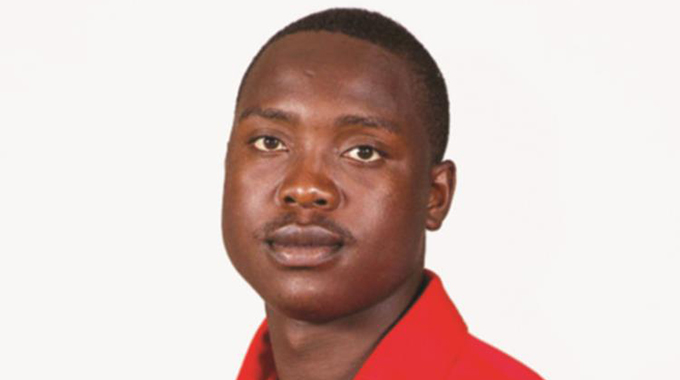Mono sheds light on times with Tuku

WE publish here, the first in a series of articles on the life and work of the late music superstar Oliver Mtukudzi, who was conferred with national hero status when he died in January, 2019
Clive ‘Mono’ Mukundu Correspondent
It was Monday, February 3, 2003, when I received a call from the then Black Spirits manager, Debbie Metcalfe, to come for a meeting at her offices.
She asked me to bring my guitar.
Rumours had been circulating that Oliver “Tuku” Mtukudzi was looking for a guitarist and he had picked me as one of his choices.
The following day, I went to Debbie’s offices at her house in Emerald Hill.
Tuku was also at the office.
By the way, Tuku and I had met at Prince Edward School the previous year when I was teaching guitar lessons.
The school band was supposed to back him for a school gig, so I was teaching the children how to play his music, but he did not know my name.
When his then guitarist Philani Dube fell ill, he was looking for a replacement since he had tours lined up and some people recommended me.
As I was to learn later, Tuku was looking for Mono and, if he failed to find him, he was going to settle for the Prince Edward School guitar teacher, whom he had met teaching schoolchildren his music.
When I entered Debbie’s office, Tuku was happy to realise it was the same music teacher he had seen at Prince Edward.
He politely introduced himself, which was not necessary, anyway. I later asked him why he greeted me in such a manner and he said it was rude to assume that everybody knew him.
Tuku then introduced Debbie and their reception made me blush.
It was my first time to speak to someone of his status and, obviously, I was nervous. By the time we finished our discussion, the rest of the band had gathered in the garage where rehearsals were held.
I knew half the band on a personal level, so it made it easier for me to relax a bit.
He went on to introduce new songs he was about to record and asked me to create my own guitar lines. As an experienced session guitarist, I was quick to adapt and he was very happy.
We were to record the songs later that year on an album called “Tsivo”.
The first thing that I learnt on the very first day was Tuku’s humility.
There I was, sitting next to this gigantic international superstar, but he was so humble and, just like the rest of the band, he would crack jokes and everybody would laugh.
The band members would also make fun of him and he was not offended, which is not common with most Zimbabwean bosses.
That was the beginning of a long relationship that lasted till he passed away.
Within a week, he had found a nickname for me, he called me “Pastor,” maybe because of my Christian background.
That is how the nickname started; of course it was elevated to “Prophet” later.
Tuku believed in inspiring his workers. Most Zimbabwean bosses, especially in music, believe in intimidating their workers.
He interacted with everybody in the band and if you did well, he would personally express his happiness.
Tuku had personal experiences and personal jokes with everybody in the band from the roadies, door men, to the manager. That made everybody very comfortable and looking forward to come to work — everybody had a sense of ownership of the band.
Tuku and his manager made sure everybody was paid well.
When I received my first pay, it was my first time to hold such an amount of money and I was shocked. My wife was also shocked and for a moment we did not know what to do with the money.
Within a year of playing for Tuku, my wife and I had bought a house in Warren Park and fully paid for it.
The following year, we started buying studio equipment and the studio was complete by end of 2006.
Most artists in Zimbabwe are known to be bad paymasters who take 99 percent of the income and leave the band to share the remainder, but not for Tuku.
Another thing I learnt from him was stage presence.
Tuku was never intimidated by any artist, no matter how big the artist was. His reason was that he was original, he was playing a Zimbabwean sound that was his own. He was not competing with anyone.
This made his performances very entertaining because confidence is an integral part of performance.
On stage, Tuku showed a lot of joy and always had a smile of confidence.
On and off stage, he had confident body language too, no matter who he was interacting with.
I began to imitate his stage presence and teaching myself to be as confident as he was on and off the stage.
I worked with him full time for four years. After those years, I worked with him on part-time projects till he passed away.
I consider that period as the era of attainment of my “PhD” in music.
We toured around the world and around Africa, shared the stage with so many artists and learnt far too many lessons that I would never learn at any institution.
In terms of the Zimbabwean arts in general, Tuku instilled a sense of pride.
Most artists feel ashamed to be Zimbabwean and Tuku always preached against that, advising youngsters to be original and to be Zimbabwean in sound.
He was one of the first artists in the country to have an effective professional manager in Debbie Metcalfe.
Every artist started employing managers to take care of their business side of things after noticing what Tuku had done.
Tuku was one of the early artists to have his music mastered, when mastering was introduced internationally.
Mastering is the process that makes the music on the CD stronger, heavier and louder.
I remember back around the year 2000, if you removed a Tuku CD from the CD player and put any other Zimbabwean CD, the difference in volume was so clear.
Tuku’s CDs would be louder and clearer, and other musicians started following suit.
When he eventually died in January 2019, I was not surprised that Tuku was conferred with the national hero status, because the honour was befitting.
Tuku is someone who put Zimbabwe on the world map through music.
May his soul rest in peace.









Comments